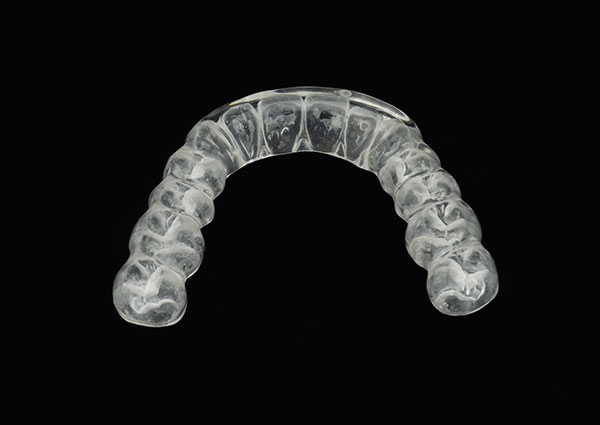At least 10% of the population grinds or clenches their teeth at night. This habit is called “bruxism” and is a form of sleep movement disorder. You may not be aware of it until your dentist professional sees signs of wear on your teeth. Symptoms of clenching and grinding consist of headaches, neck aches, and soreness in the muscles of the cheeks and jaw. As well as pain in the jaw joint and chipping, fractures, and sensitivity in the teeth. A nightguard works by preventing tooth on tooth contact of the teeth. Listed below are a few benefits of wearing a night guard.
Preventing Tooth Wear With A Nightguard
One of the most common effects of clenching and grinding is wear to the biting surfaces of the teeth. Often, with grinding, the teeth will have a more flattened shortened appearance. With clenching, indentations of the opposing cusps can be seen. Sometimes these signs won’t be noticed until you see your dentist or dental hygienist. Wear to the biting surfaces of the teeth can lead to sensitivity from the loss of enamel. Sometimes if the wear is deep, a filling may need to be placed to protect the enamel that remains. Wearing a nightguard doesn’t stop clenching or grinding, but it places the wear on the nightguard itself.

Preventing Chips and Fractures
Chips and fractures of the teeth surfaces can occur from clenching and grinding. When a spot is worn down too much and becomes thin, sometimes it can chip off. Fillings must be placed to restore these areas and wearing a nightguard will prevent them from occurring.
Preventing Bone Loss
Constant excess pressure on the teeth can cause the bone and gum support from around the teeth to slowly recede away. This happens because the teeth and bone support are not meant to bear such an excess load, and the cells begin to resorb. This process happens over time slowly, but once gum and bone are lost, they cannot grow back on their own. Wearing a nightguard prevents the excessive force on the teeth that cause recession and bone loss.
Preventing TMJ Issues
Grinding and clenching can cause pain and soreness with the jaw joint, called the temporomandibular joint. The TMJ (for short) is not meant to bare the excessive force of clenching and grinding and can sustain injury overtime. Wearing a nightguard adds a cushion between the teeth that absorbs the forces and protects the jaw.

